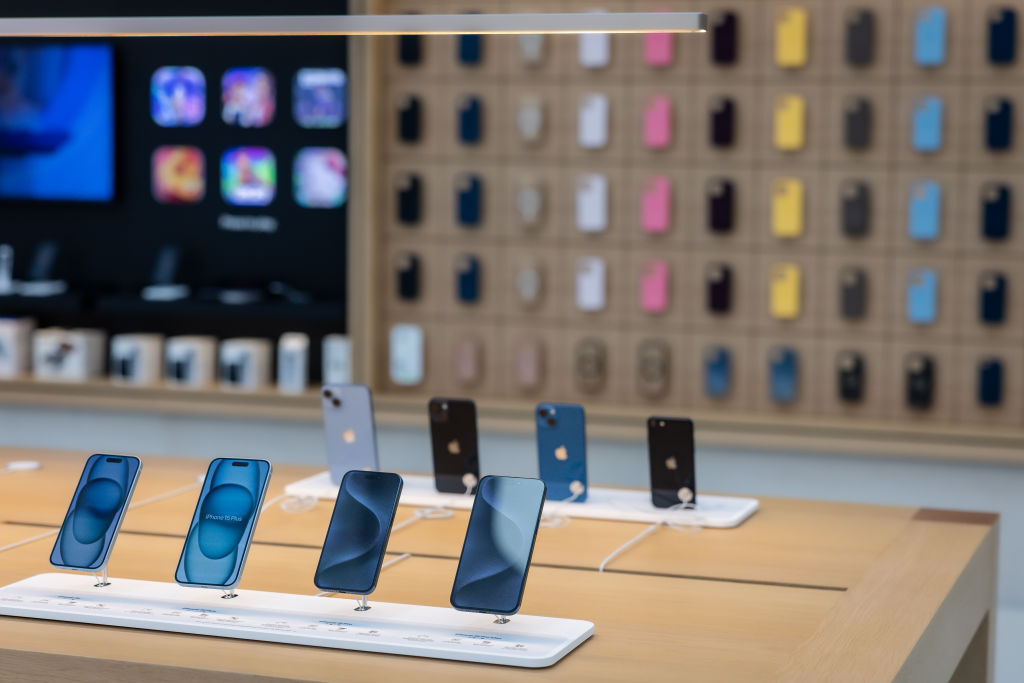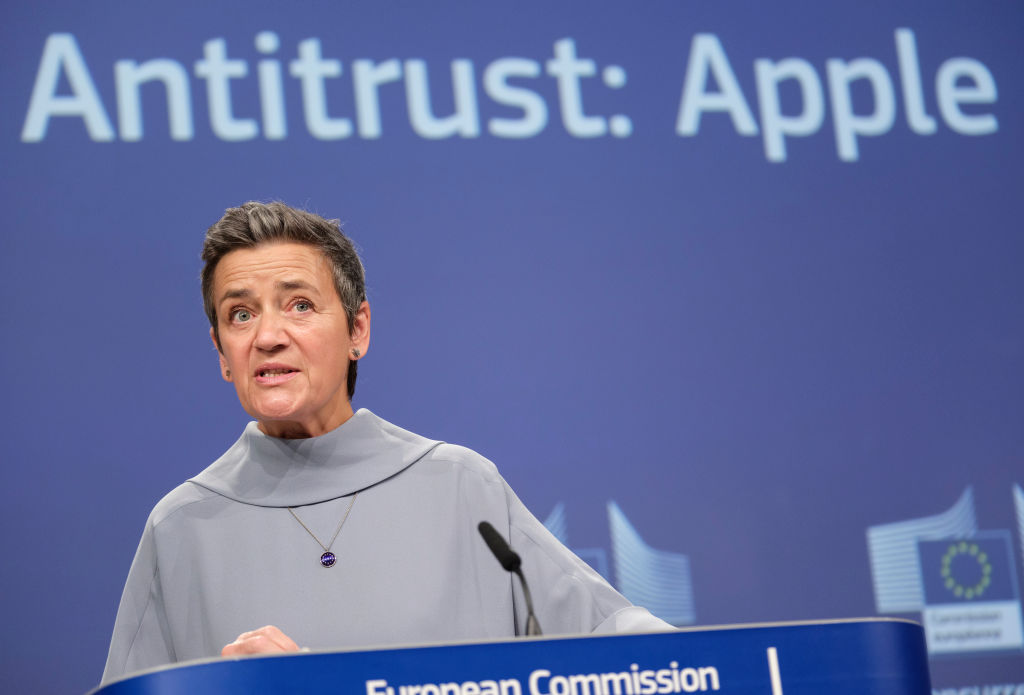US multinational Apple says the European Union’s flagship Digital Markets Act (DMA) has forced it to allow porn onto its app store.
In a lengthy statement issued on September 24, Apple, which has built its reputation on tightly integrated hardware and software, said the DMA was having “serious unintended consequences” that left its European customers with poorer devices than the rest of the world.
By requiring Apple to allow the “sideloading” of third-party app stores and alternative payment systems, the DMA has — for the first time — brought pornography and gambling apps to iOS, it said. Sideloading is the process of installing applications or transferring files to a device from sources other than its official app store.
Apple singled out Hot Tub, an explicit-content app distributed via AltStore, as an example of apps it would have blocked under its long-standing App Store rules.
Apple argued that these changes do not just affect children’s safety but also increase the risk of scams, malware and predatory billing practices.
“On other platforms, users have been tricked into downloading fake banking apps or paying through shady processors with no refund options,” the company warned. “The DMA is making those same dangers more likely for our users in Europe.”
The company urged the European Union regulators to take a closer look at how the law is affecting the bloc’s citizens who use Apple products every day.
It highlighted several major features that have been held back from EU customers because the DMA requires them to be made compatible with non-Apple systems first.
Attractive new features, such as Live Translation with AirPods – which lets users have real-time conversations across languages; iPhone Mirroring, designed to let users control their iPhone directly from their Mac — checking notifications, dragging photos, or continuing apps seamlessly — were all delayed in the EU because of the stifling European regulations, it said.
Apple argued that these are not minor updates but major innovations designed to improve everyday life. The company said the DMA is preventing it from delivering them to European users at the same time as the rest of the world.
The company also warned that DMA-mandated changes to app distribution are eroding one of iPhone’s most important selling points: A single, curated, secure App Store.
Instead of one trusted storefront, users must now navigate multiple marketplaces, each with its own rules and levels of oversight. Apple said this will inevitably lead to confusion, “lookalike apps” and a fragmented, less intuitive experience.
This criticism comes as the EU attempts to push through chat control again, a mass surveillance, encryption-breaking and anonymity-ending law. The European Commission says it is needed for children’s safety and to protect people against scams and other malicious online practices.
Apple also said the DMA allows competitors to request access to highly sensitive user data and that so far, the demands have been alarming.
Outsiders submitted requests for some of the most sensitive data such as the complete content of a user’s notifications, including private messages, medical alerts, and emails. They also wanted to know users’ full history of Wi-Fi networks, which could allow rogue players to infer whether a user visited a hospital, hotel, or courthouse, for example.
Handing out such sensitive information would expose EU citizens to surveillance and tracking, Apple warned.
The company argued that the DMA creates “serious risks” while regulators have so far rejected privacy and security concerns as valid reasons to deny requests.
In a reaction to Apple, the EU said yesterday it had “absolutely no intention” of scrapping its landmark DMA.
“We are not surprised by Apple’s lobbying paper asking us to repeal the DMA. Why are we not surprised? Because Apple has simply contested every little bit of the DMA since its entry into application,” EU digital affairs spokesman Thomas Regnier said.
He said that undermines Apple’s narrative of wanting to be fully co-operative with the EC and it was driven by its need for profit. He added that Europeans have the right to full access on their platform with other products.
In April, Apple was fined €500 million over DMA infringements; another case is ongoing.
Regnier said the EC was being helpful but that Apple was not.
Fiona M Scott Morton, senior researcher at Bruegel and Economics Professor of Economics at Yale, said during a Bruegel conference in Brussels that one of the problems of the DMA was that “as the regulator does not understand the technology, business users are the only parties who can assess compliance”.
The European Union’s latest enforcement actions under the Digital Markets Act have set the stage for a confrontation with some of the world’s largest tech companies. https://t.co/XtGewccv85
— Brussels Signal (@brusselssignal) March 21, 2025





